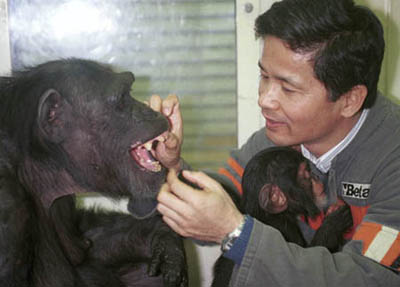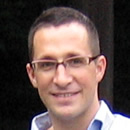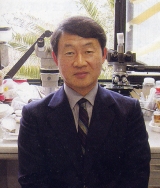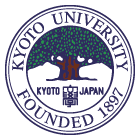General Information
|
|
Keynote Speeches

Introduction
Professor Tetsuro Matsuzawa (Born in Oct. 1950) is a primatologist and the director of Primate Research Institute of Kyoto University, Japan. Professor Matsuzawa is known for his research on chimpanzee intelligence both in the laboratory and in the wild. Through his cognitive research of chimpanzee Ai over a period of nearly 30 years, he is probing the evolutionary origins of the mind and behavior of human, Homo sapiens. He is internationally renowned as the pioneer of a new research field called 'comparative cognitive science'. He is one of the featured speakers in the Symposium 'Decade of the Mind III: Emergence of Mind', held in May 2008 in Des Moines Art Center, USA.
The starting point of Prof. Matsuzawa's research was to philosophically question what it is for a person 'to know'. He tries to synthesize the field work and the laboratory work. The laboratory work, known as 'Ai-project' which was started in 1978, focuses on the language-like skills and the concept of numbers established in a female chimpanzee named Ai. As for field work, Prof. Matsuzawa has also been studying the tool use in the wild chimpanzees at Bossou, Guinea, West Africa, since 1986.
In 2000 when Ai's son Ayumu was born, Prof. Matsuzawa's interest was broadened to consider how chimpanzees hand down knowledge and technology to the next generation. Specially, he and his colleagues developed a new way of studying cognitive development in chimpanzees. The method is called 'participation observation'. And their combination of laboratory and field studies has revealed a unique mode of social learning in chimpanzees, referred to as 'Education by master-apprenticeship'.
Professor Matsuzawa has won a number of prizes including Prince Chichibu Memorial Science Award in 1991, Jane Goodall Award in 2001, and The Medal with Purple.
Reference
Primate Research Institute of Kyoto University

Introduction
Dr. Stephen R. Nagy received a Bachelors degree in Science, from the University of Calgary (Canada), his M.A. in International Relations from Waseda University, and his Ph.D. degree in International Studies from Waseda University (Japan) in March 2009. He is currently an Research Associate at the Institute of Asia Pacifc Studies, Waseda University.
Dr. Nagy served as the vice president of Communications for the Association of Pacific Rim's Doctoral Student Network from September 2006 to July 2008 and is currently the President of the Waseda University Doctoral Student Network (WUDSN). His research interests include, among others, the implications of migration in non-traditional countries and regions (such as Japan, Korea and Taiwan), the manner of integration formation and development, cultural identity in Asian, and examining human security related issues through the prism of migration.. He participated in the 7th and 8th APRU DSN. Motivated by the experience and observations from participating in the DSN, he founded a similar group at Waseda University, the WUDSN. The WUDSN provides opportunities for doctoral students' work and creates a stimulating environment. Well recognized for its achievements, the Global Institute supports the WUDSN for Asian Regional Integration (GIARI), also located at GSAPS. As part of this collaboration, the WUDSN expresses themes related to Asian integration including but not limited to politics, security, economics, society, and culture.
Dr. Nagy also works for Kendo World Edition Committee as a staff writer.
Reference
Waseda University Doctoral Student Network (WUDSN)
Global Institute for Asian Regional Integration (GIARI)

Introduction
Dr. Shin Kubota (Born in Nov. 1952) is an associate professor of the Seto Marine Biological Laboratory, Field Science Education and Research Center in Kyoto University, Japan. The keyword of his research can be described as 'immortality'. Recently, his systematic and biological studies on "immortal" medusa Turritopsis nutricula McCrady (a type of normal jellyfish) project is going on internationally, contrasting to an ephemeral jellyfish of Eugymnanthea japonica Kubota, the most evolved bivalve-inhabiting hydrozoa. His specialty is the systematics of coelenterata, particularly hydrozoans, which includes Turritopsis nutricula, and studies on the natural history of diverse animals in Japan. He carries on his research with breeding in the laboratory and in the field around the Seto Marine Biological Laboratory.
Established in 1922, the Seto Marine Biological Laboratory is one of the oldest of its kind in Japan, with an excellent aquarium that is also one of the oldest in Japan. It is situated in the southern part of the west coast of the Kii Peninsula, and in the bay mouth of Tanabe Bay, which is situated at the point where the Kii Strait meets the Pacific Ocean. The marine climate is also warm and mild because it is strongly influenced by a branch of the Kuroshio current. Due to this climate, there are both subtropical animals and temperate animals. The location is closely related with his research.
He observed the process of youth restoration in Tanabe Bay Turritopsis nutricula. He caught the state of changing the old body (Jellyfish=adult), which is having its gametes, to the new body (polyp=young) for the first time in the world.
Moreover, he has composed many songs with creatures of the ocean, including the Turritopsis nutricula. And he has been vigorously active in cultivating a love for nature through these songs.
Reference
Dr. Kubota's homepage
|





